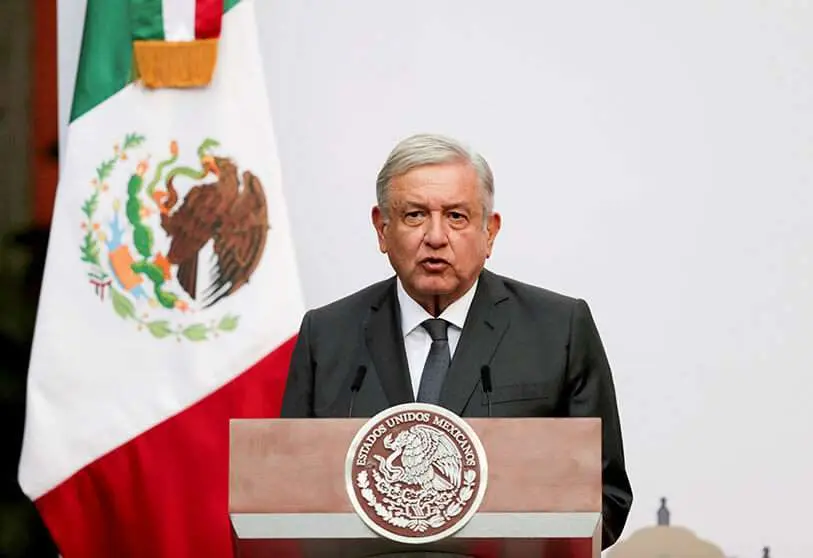Ephemeris and anti-historical pardons

Rare is the day when something cannot be commemorated. If anniversaries cover a large territorial and human community, unanimity in commemorating them is also rare. We live in turbulent times of historical revisionism, and the past is used to control the present and dominate the future.
The 500th anniversary of the fall of Tenochtitlán, which 200 years earlier had become the capital of the Aztec empire, has just passed. The many peoples subjected to that empire saw in the arrival of a certain Hernán Cortés a liberator, so they gave him the necessary help to throw off a yoke that, among other things, took its toll in the subjugation of the Totonacs, Tlaxcalans, Otomies and Texcocos in slavery and terror, exemplified by the rivers of blood from the countless human sacrifices demanded by the insatiable god Huitzilopochtli.
Mexico's current president, Andrés Manuel López Obrador, has described the event as a "catastrophe". The Mexican leader would be right to use such an adjective if he were referring only to the Aztecs, but to lump all peoples subject to the dictates of Moztezuma or Cuauthemoc into such a misfortune is possibly an exaggerated licence. AMLO, a recent descendant of Spaniards, not only apologised for the conquest of Tenochtitlán but of all that came to be called New Spain, a viceroyalty that reached an extension of four million square kilometres, and a splendour far superior to what the Spanish metropolis could exhibit in its best moments, even if it was Madrid or Seville.
AMLO and many of the current political leaders of the Ibero-American continent who join the bandwagon of historical revisionism, encouraging the demolition of statues and monuments commemorating the Spanish-American encounter, or blaming Spain for the backwardness and misery of many of their societies, do not find a positive balance to those three hundred years of symbiosis, miscegenation and cultural leap that the tutelage of the Spanish Crown over territories that stretched from Alaska to Tierra del Fuego entailed.
Two centuries have passed since the Creole caudillos preferred to become absolute masters of those lands rather than remain under the tutelage of a Spain that had fallen into decline, especially since the Congress of Vienna in 1815 delimited the new spheres of power in Europe after Napoleon's defeat at Waterloo. Anglo-Saxon power was emerging as the new centre of the world, whose priority in America was not exactly the enthronement of indigenous power. The current indigenous population indices in the United States and Canada, for example, compared to those in Ibero-American countries, are the best evidence of where and when the alleged genocides may have taken place.
A unified empire of such colossal dimensions, with an elite educated in the 24 universities and over a hundred great colleges founded by the Spanish, would remain a threat as long as it nurtured Simón Bolívar's liberating but unifying dream. Thus, the new American nations that successively celebrated their independence from Spain would be much weaker and manipulable. The continent's recent history demonstrates quite forcefully how its citizens went from being Spaniards from the other hemisphere with full rights (Constitution of 1812) to being members of the United States' "backyard".
Surprisingly, AMLO prefers to attack the Spanish heritage rather than refer to the wars with the US neighbour that in one fell swoop stripped it of more than half of its territory. Mexico, the most populous and wealthiest country and capital of the entire continent at the beginning of the 19th century, thus ceded such primacy to the United States in barely a decade.
But to return to the commemoration of the reconquest of Tenochtitlán, that event undoubtedly marked the end of an era and the beginning of a new world, similar in its universality and importance to the emergence of Athens or the expansion of the Roman Empire. It would be ridiculous to abhor the conquest of Hispania and the establishment of Roman civilisation, however heroic the resistance of the Iberian tribes, and however worthy of praise the epic of Numantia or Sagunto. AMLO, and other leaders who follow that line, seem to have lost that sense of the ridiculous.
The offensive launched by the supposed defenders of American indigenism against what was until recently considered the mother country is not a spontaneous movement either. It is largely encouraged by the same people who want to replace the image of an enlightened and civilising West with that of an exploitative and colonialist monster. It is curious, moreover, that the Spanish accept without further ado the imposition of the term "colony" on their presence in America, yet another Anglo-Saxon contribution to this black legend, cultivated not only by its English, Dutch, German and French inventors, but also by a considerable part of the Spanish left-wing parties, the most fervent fifth columnists in the disqualification of the country's best contributions to world history.

